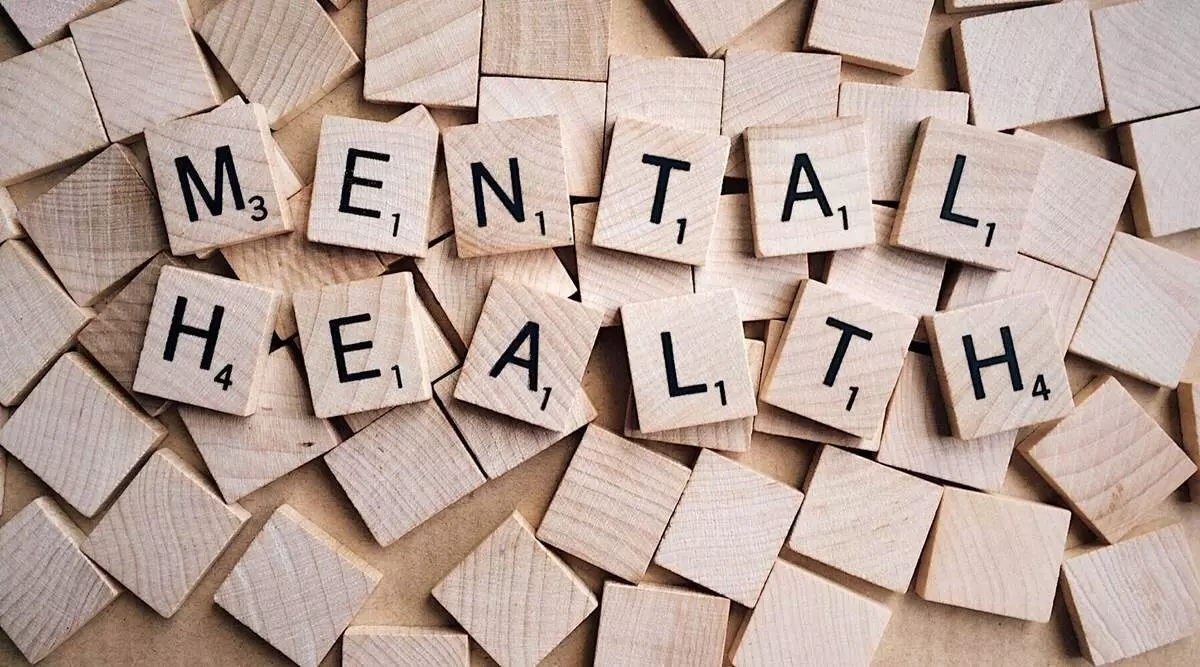Hyderabad: Mental Health Issues Taking a Heavy Toll of Youth

Hyderabad: Mental health issues among young people aged 17-28 are often attributed to work-related stress, but family problems are just as significant. Many youth find themselves navigating financial struggles, family expectations, and conflicts at home, which are as impactful as external pressures. These problems are compounded by the need to balance family obligations and societal expectations, particularly when it comes to career paths and personal aspirations.
Sam, a 21-year-old computer science student at Mahbub Degree College, is one among many caught in the crossroads. Passionate about pursuing a career as a rapper, Sam uses social media as a means to escape the mounting pressure from his father, who insists that he join the family business.
"He talks about it to others to make me feel ashamed, not realising I have different interests," Sam explained.
Similarly, his friend Bhagyalaxmi also faces family-related stress, albeit of a different nature. With a parent struggling with mental health issues, she tries to spend as little time at home as possible, seeking solace in her college environment.
"The situation at home is disturbing. I don't want to deal with the constant tension caused by my father's condition," she shared.
Family issues not only disrupt daily life but can also affect self-image and decision-making. Sharanya, a 25-year-old media professional, has found that her family’s needs often overshadow her own.
"I owe a lot to my grandfather for raising me, but I struggle to make my priorities count. My goal now is to earn enough to support myself," she said. Sharanya's mental health struggles have finally sparked conversations within her family about issues like depression. "They never acknowledged depression before, but now they understand after seeing my panic episodes."
Research on young people between the ages of 17 and 23 years indicates that poor family dynamics—high conflict, lack of cohesion, and ineffective communication—significantly raise the risk of depression. Lack of independence, along with parents’ discouragement, has been linked to higher vulnerability to depressive disorders in this age group.
Dr Padmaja Gaddamanugu, assistant professor of Psychiatry at NIMS, sheds more light on this issue. She said "Family and school are often the main trigger points when it comes to youngsters and their mental health issues. Many of them end up having conversion disorders, which means they have physical symptoms of psychological problems. We have seen cases of blackouts, fainting and psychological non-epileptic seizures in such students. This is more so with those staying in hostels, and students in gurukul schools and coaching institutes."
Dr Padmaja emphasised the importance of communication between parents and their children.
"If a child appears disinterested, afraid of school, or exhibits signs like excessive shouting or sleeping, parents should recognise these as warning signs and have open conversations with them," she advises.
For many young people, the pressure to form their own family is another major stressor. While women often face pressure to marry early, men are also not exempt from this societal burden.
Dinesh K., an IT professional, remarked, "People think only women face this pressure, but men do too, especially those in their late 20s. Society is equally unforgiving of unmarried men. Family conflicts, like parental disputes or strained relationships, can impact one’s mental equilibrium. Additionally, rigid gender roles or family obligations can limit personal development, leading to frustration."
He added that urbanisation, while providing more opportunities, often results in social isolation, eroding community support systems and leaving young people vulnerable.
"The social stigma surrounding mental health remains a major barrier for seeking help. In rural areas, limited access to mental health services compounds this issue," said Dr Mazher Ali, consultant psychiatrist at CARE Hospitals.
Work-related stress is also a common trigger for mental health issues, particularly among youth transitioning from university to the workforce. Long hours, lack of guidance, and the uncertainty of the future are prevalent even in creative industries.
Harsha Vardhan E., an assistant director in Tollywood, shared his struggles, saying, "In the film industry, the future feels uncertain until you succeed. Each project takes years, and the pay barely covers expenses. Watching my corporate friends advance while I stay stagnant fuels self-doubt, hindering my creative abilities."
For students abroad, the pressure is no less intense.
Prakhar, a physics graduate from Heriot-Watt University, works physically demanding jobs to repay student loans while facing job rejections. "Despite working for over 40 hours a week, job rejections make it feel like we're doing nothing. Almost everyone I know here struggles with depression," he admitted.
Younger students, too, face significant academic stress.
Likhita, a Class 12 student, said, "Switching from BiPC to CEC after dropping a year was tough. Many students lack clarity and guidance, which can push them toward depression."
As Dr Ashok Alimchandani, president of the Indian Psychiatric Society, Telangana chapter, pointed out, the internet has become a major influence on young people’s values, often replacing traditional support systems.
He noted that adolescents increasingly adopt social norms from peers and the internet. Parents, having themselves grown up in isolation, do not pay heed to the emotional wellbeing of their children, often ignoring the warning signs, he added.

